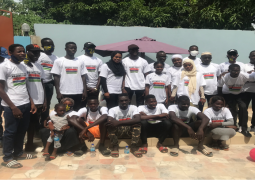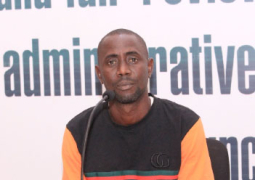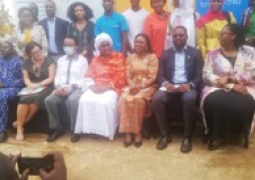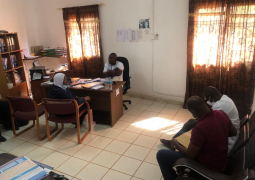A statement delivered by the Governor of Central Bank of The Gambia, Buah Saidy, at the Stake in the Nations Forum-7th(SNF) on 13th January 2023, revealed that remittances play an essential role in the economy of the country. He added that over the year, official statistics on remittances have recorded significant inflow of funds, providing direct monetary benefits to Gambians from all walks of life.
Accordingly, it is a key source of foreign exchange for the country and has substantial influence on its balance of payment, thereby easing the international flow of goods and services into the country.
Governor Saidy added that, “For the year 2023, the total remittance inflow to the Gambia stood at USD 737.12 million, which accounted for 32.11% of our nominal GDP and represents an increase of 3.46% over the same period in 2022. The expansion is partly due to improved monitoring methodology and the increased use of formal channels by the diaspora and the use of technology in sending remittance. The emergence of Fintech companies is believed to have also lowered the cost of sending and receiving remittances, he underlines.
Ebrima Sawaneh, Diapora keynote speaker said, according to reports from The Gambia Statistics Bureau, as of 2020 the poverty rate stood at 53% while the senior secondary school competition rate from 2018 to 2022 rose to 21%. He said the figure illustrates progress made as a nation compared to the past, yet, the numbers are not statistics, rather they represent the zeal and dreams of millions of Gambians. He therefore called for the need to continue and search for a resolution to create an impact that includes everyone irrespective of where there is need.
He highlighted that if all those in the Diaspora had invested in structures means what the country would have achieved by now would have been unimaginable.
Professor Gibril Faal, director of GK Partners & Migration Sustainable Development in The Gambia (MSDG) Project, highlighted that, SNF was initiated in 2017 as an annual consultative dialogue through MSDG with the purpose of improving the role of Diaspora in national development.
“MSDG started as a 7 month pilot project with a budget of twenty-eight thousand euros (€28,000) from January to July 2017. The operating budget of the third phase for July 2021 to June 2024 increased to €4.5 million. About €2million comparise cash grants, donations, fees and investment, and €2.5million comprise in-kind contributions from 52 Diaspora Fellows, Government of The Gambia, and other development partners,” Prof. Faal outlined.
He further stated that, institutional cooperation grew from three(3) formal relations with ministries, departments and agencies in 2017 to twenty (20) institutional partners in 2023. He added that ten (10) Diaspora Development Funds (DDF) awards were made in 2020 and 47 new DDF awards in 2022. Specific MSDG innovations and impacts include the Diaspora Technical Cooperation, Comprehensive Diaspora Action, DDF, remittance and financial inclusion, Integral Rural Development, SNF, National Assembly Television, University Scholarship Endowment Fund, Cultural and Scientific Development, and Diaspora Institutionalisation in the Public Sector.





